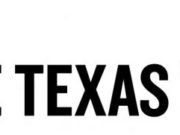This piece originally appeared in the New York Daily News on September 5, 2023.
The Daily News in July revealed that Rachel Atcheson, a staffer of Mayor Adams, had contact with the ringleader of an alleged scheme to defraud New York City taxpayers. While Atcheson and Adams have not been accused of wrongdoing, the news raises alarming questions about the city’s public matching funds program for local elected offices.
It’s not the first time a politician or his supporters stand accused of exploiting these taxpayer funds.
This spring, we learned of ex-con Lamor Whitehead’s alleged attempt to swindle public money in his failed campaign for Brooklyn borough president.
According to federal prosecutors, Whitehead fraudulently declared that his own campaign contributions originated from other people so that he could pump his war chest full of undeserved “matching funds.”
Who would have guessed that a convicted felon who served time in Sing-Sing for identity theft would ever lie about the source of his campaign cash? If you pitched it in a writer’s meeting, it would be rejected for being too “on the nose.”
Federal prosecutors claim they have “ample” evidence of the scheme but have not yet filed charges. A letter submitted in Manhattan Federal Court by prosecutors from U.S. Attorney Damian Williams’ office in an unrelated case detailed the allegations.
The city’s program incentivizes scams by shoveling $8 in tax dollars for every $1 of eligible campaign contributions to politicians. The big pot of “free” money makes illegal straw donor schemes enticing. If a sleazeball can magically — and illegally — transform one big contribution into several smaller contributions, he can multiply each dollar eightfold.
Ironically, supporters of such taxpayer-funded schemes claim they reduce corruption by making small-dollar donors more important and making candidates less reliant on “special interests.”
In reality, these programs attract crooks by creating new avenues to exploit public money.
Even politicians “who long enjoyed a reputation for honesty and scrupulousness” have been convicted of defrauding taxpayers through these rackets. So, what must that mean for the less morally upright?
We’ll soon find out. This year, taxpayer-financed campaigns expanded statewide. Lawmakers in Albany recently approved Gov. Hochul’s whopping $39.5 million budget allocation to the new taxpayer-funded system.
Passed during a devastating pandemic and plummeting tax revenue, New York’s new budget law gives tens of millions of tax dollars to political campaigns. Instead of using the money to benefit the public, politicians thought state residents should instead fund the robocalls, consultants, and political ads of candidates. The New York Legislature really knows how to prioritize.
As a result, the government now forces Empire State residents to finance the campaigns of candidates with whom they disagree. Because the First Amendment rightfully prevents the government from discriminating based on viewpoint, the state campaign finance board must fund any eligible participating candidate, regardless of his message.
This means that the public pays for campaigns with hateful messages, too. To see what the future holds for the state, look to a previous New York City Council race in which former candidate Thomas Lopez-Pierre received nearly $100,000 in taxpayer money for a blatantly antisemitic campaign. If a participating state candidate wants to run on a similar platform targeting “greedy Jewish landlords,” guess who’s footing the bill?
It feels slimy just thinking about it.
Instead of taxpayers subsidizing abhorrent messages, making politicians rely on their campaigns would be much easier. But then self-serving lawmakers couldn’t fill their own campaign coffers while claiming to stop corruption. That’s the real obstacle.
Defenders of tax-financed schemes peddle them as beneficial political newcomers, but that’s another lie. No one benefits more than wealthy, well-connected incumbents who already have the name recognition and media contacts to generate significant matching funds.
In 2017, Mayor Bill de Blasio saw a windfall of nearly $3 million in tax dollars for the primary alone, in a reelection race he was heavily favored to win. Letitia James, who is now the state’s attorney general, received more than $750,000 in public matching funds for her 2017 reelection for city public advocate against a little-known and poorly funded first-time candidate.
Supporters convince themselves that championing these setups makes them “pro-democracy.” What could be less democratic than famous, wealthy, or connected bigwigs taking taxpayer money to fuel their own political fantasies?
Scamming the system is anti-democratic, too. Corruption makes people lose trust in the democratic process.
And, unfortunately, taxpayer-funded campaign systems are corruption magnets, attracting con artists like flies to manure.
New Yorkers should be disappointed, but not surprised, by news of alleged straw donor schemes. So long as these resources exist, their exploitation will persist.














